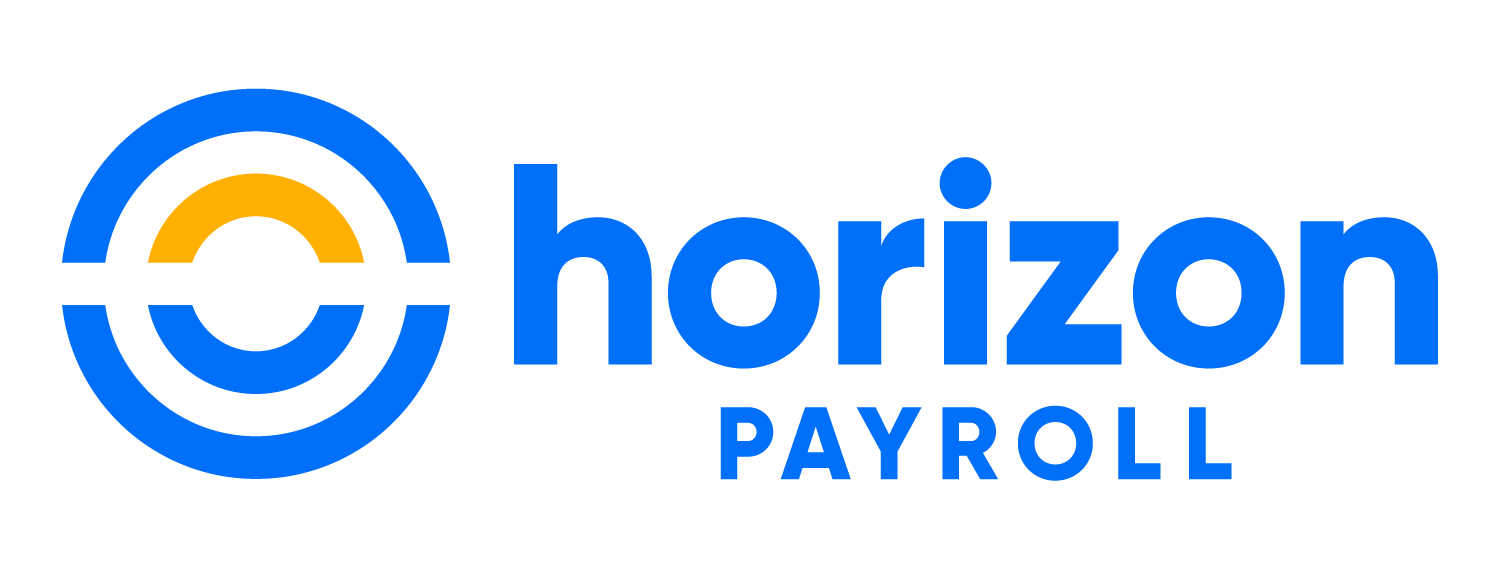6 min read
8 Common Payroll Mistakes & How To Avoid Them
Payroll might seem straightforward, but anyone who's handled it knows the reality: it’s a minefield. One misstep can cost you time, money, and even...
Expert payroll management services with a personal touch.
View Solution Read Guide HR Support
HR SupportSimplify and personalize HR with a team of HR experts on-demand.
View Solution Read Guide Time & Attendance
Time & AttendanceWhy spend more unnecessary time and money managing your workforce?
View Solution Read Guide Hiring & Onboarding
Hiring & OnboardingTurn your candidates into employees with hiring & onboarding solutions.
View Solution Read GuideAdd On Solutions automate everyday tasks, prevent mistakes, and simplify business compliance.
View SolutionHelpful downloads and eBooks to empower your business.
Helpful tax and HR alerts to help keep your business compliant.
Payroll and tax-related forms and documents.
Log in to your employer (admin) and employee portals.
Horizon's blog provides valuable insight into payroll, compliance, human resources, and more.
See our client success stories for a case study on how we can help your business.
Payroll and HR strategy requires intelligent technology, personal attention and specialized expertise in the needs and nuances of your business.
We provide payroll and tax processing services for businesses from 1 to 1,000 employees or more. Today, we have nearly 1,000 customers in 40 states.
4 min read
![]() Horizon Payroll Solutions
:
July 7, 2025 at 12:00 AM
Horizon Payroll Solutions
:
July 7, 2025 at 12:00 AM
On July 4, 2025, the One Big Beautiful Bill Act (OBBBA), commonly known as the Big Beautiful Bill, was signed into law by President Trump. It is a tax‑and‑spending reconciliation package that revives and extends elements of the 2017 Tax Cuts and Jobs Act and introduces new tax relief provisions for tipped workers and those earning overtime. For HR and payroll professionals, several provisions carry direct operational implications.
The bill was introduced May 20, 2025, cleared both chambers in early July, and became law on July 4, 2025. It’s officially Public Law 119‑21.

For tax years 2025–2028, an individual can deduct up to $25,000 of qualified tips, subject to income phase‑outs. Employers (or other payors) must file information returns and furnish statements showing certain cash tips and the occupation of the recipient. The IRS will publish by October 2, 2025, a list of occupations that “customarily and regularly” receive tips as of Dec. 31, 2024; transition relief applies for 2025.
To help employees prepare for this change, businesses should keep or enhance their tip‑tracking processes (e.g., POS imports, allocation, Form 4137 workflows). Make sure your Payroll system can capture occupation data and produce year‑end files reflecting tip amounts that meet the new IRS information‑reporting rules.
For 2025–2028, individuals may deduct up to $12,500 of qualified overtime ($25,000 joint), again with income phase‑outs. Employers must report qualified overtime totals on year‑end forms; 2025 transition relief applies. Legal analyses stress that “qualified overtime” tracks FLSA Section 7 rules (e.g., the “half‑time” premium component), and that the Big Beautiful Bill doesn’t eliminate all taxation, state income taxes and FICA rules still apply. Practically, individuals will need to distinguish FLSA‑required overtime from richer, employer‑optional multipliers (e.g., double‑time) that may not qualify for the federal deduction.
Update timekeeping so overtime is coded at the pay‑component level (regular vs. premium portions) and mapped to W‑2 reporting lines per forthcoming IRS specs. Confirm your approach in each state; some states have already said they will still tax overtime at the state level.
Although the Big Beautiful Bill does not raise the federal minimum wage, it creates new tax deductions for overtime and tipped compensation that require payroll system updates. For tax years 2025 through 2028, employees may exclude up to $12,500 of “qualified overtime” premiums (time‑and‑a‑half) if filing singly, and up to $25,000 if filing jointly; similarly, up to $25,000 of “qualified tips” can be deducted annually, subject to phase‑outs based on modified adjusted gross income. Employers must continue to withhold federal, state, and FICA taxes on these amounts, adjust withholding tables for taxable years beginning after December 31, 2025, and report both overtime and tip deductions as separate line items on employees’ W‑2 forms.
The Big Beautiful Bill permanently extends and expands several benefit‑related payroll deductions and credits. Dependent care Flexible Spending Account (FSA) contribution limits rise to $3,750 for individual filers and $7,500 for joint filers beginning in taxable years after December 31, 2025. The employer tax exclusion for student‑loan repayments of up to $5,250 per employee is made permanent and indexed for inflation for tax years after 2026. Meanwhile, the paid family and medical leave (PFML) tax credit (originally expiring in 2025) becomes permanent, with employers able to choose credit calculations based on either wages paid during leave or premiums paid for coverage, now available for employees working at least 20 hours per week.
The Big Beautiful Bill revises IRS reporting thresholds and recordkeeping rules that impact payroll and accounts payable processes. Effective for tax year 2026, the threshold for reporting non‑employee compensation on Form 1099‑NEC and Form 1099‑MISC increases from $600 to $2,000, and the Form 1099‑K threshold returns to $20,000 and 200 transactions. Employers should update payroll and accounting systems to apply these new thresholds, validate vendor and contractor data, and ensure the timely issuance of all W‑2 and 1099 variants to avoid IRS penalties for late or inaccurate filings.
The Big Beautiful Bill modifies eligibility criteria for key credits, underscoring the need for accurate job classification and onboarding documentation. The permanent PFML credit now applies only to employees customarily employed at least 20 hours per week, rather than after a 12‑month tenure. HR teams must audit worker classifications and hours‑tracking systems to confirm which employees qualify for the credit, as misclassification could lead to disallowed credits or compliance risks.
The bill reshapes benefits administration by adjusting limits and extending safe harbors. Dependent care assistance exclusions climb to $7,500 ($3,750 for separate returns), employer‑provided student‑loan repayment exclusions of $5,250 become permanent, and the PFML credit offers two calculation methodologies.
Additionally, the COVID‑era HSA safe harbor for telehealth services under high‑deductible health plans is made permanent, and direct primary care arrangements (DPAs) no longer disqualify employees from HSA eligibility, provided monthly fees remain under $150 ($300 for families), indexed annually for inflation.
New reporting rules demand updated HR policies and record‑retention protocols. Under Sections 70201 and 70202, employers must report qualified overtime and tip deductions as separate W‑2 entries and maintain supporting documentation. The expanded definition of “covered employee” under Section 4960 subjects all nonprofit employees to potential excise taxes for excessive remuneration, requiring nonprofits to revise audit procedures and data retention practices. HR should integrate these requirements into compliance training and internal audits to ensure readiness for IRS and DOL reviews.
The Big Beautiful Bill is here, and 2025 is the first year that it takes effect. The best‑run teams will use the current guidance and transition relief to map data, test outputs, and educate employees. If you’d like help auditing your system readiness or want us to implement the new earning codes, reports, and W‑2 mapping, Horizon Payroll can get you ready before year‑end.
Who does the Big Beautiful Bill apply to?
The Act’s payroll and benefit provisions affect all employers subject to federal payroll tax and reporting requirements (including those issuing W‑2 wages or 1099 payments) and extend to both nonprofit and for‑profit entities across industries
When will the bill’s provisions take effect?
Although the law was signed on July 4, 2025, most payroll and benefits changes apply to tax years beginning after December 31, 2025 (i.e., the 2026 tax year), with temporary deductions for overtime and tips spanning 2025–2028.
How can Horizon Payroll assist with these changes?
Horizon Payroll Solutions provides turnkey payroll management, real‑time compliance alerts, customizable reporting, and HR on‑demand support to implement Big Beautiful Bill requirements smoothly, freeing your team to focus on growth and employee engagement.
This content does not constitute legal advice and does not address federal, state or local law.

6 min read
Payroll might seem straightforward, but anyone who's handled it knows the reality: it’s a minefield. One misstep can cost you time, money, and even...

8 min read
When it comes to payroll management, businesses are often faced with a tough decision: go with a big-name billion-dollar company like Paycor/Paychex...

8 min read
Running a seasonal business can feel a bit like managing two companies at once: one version of your business operates at full speed during the peak...